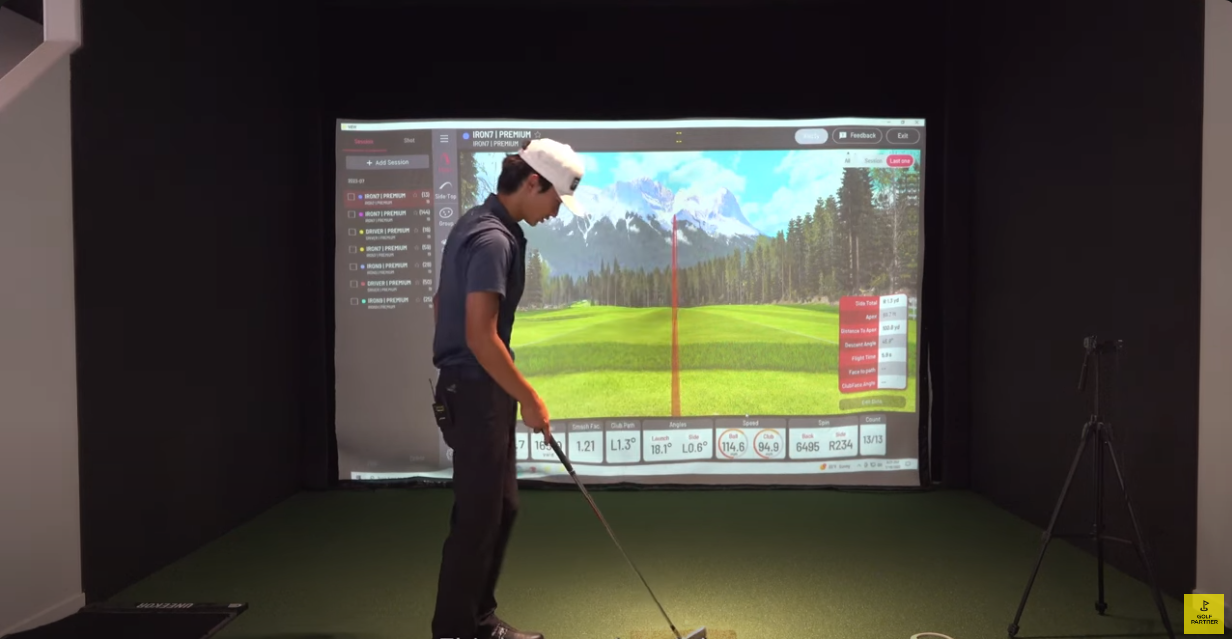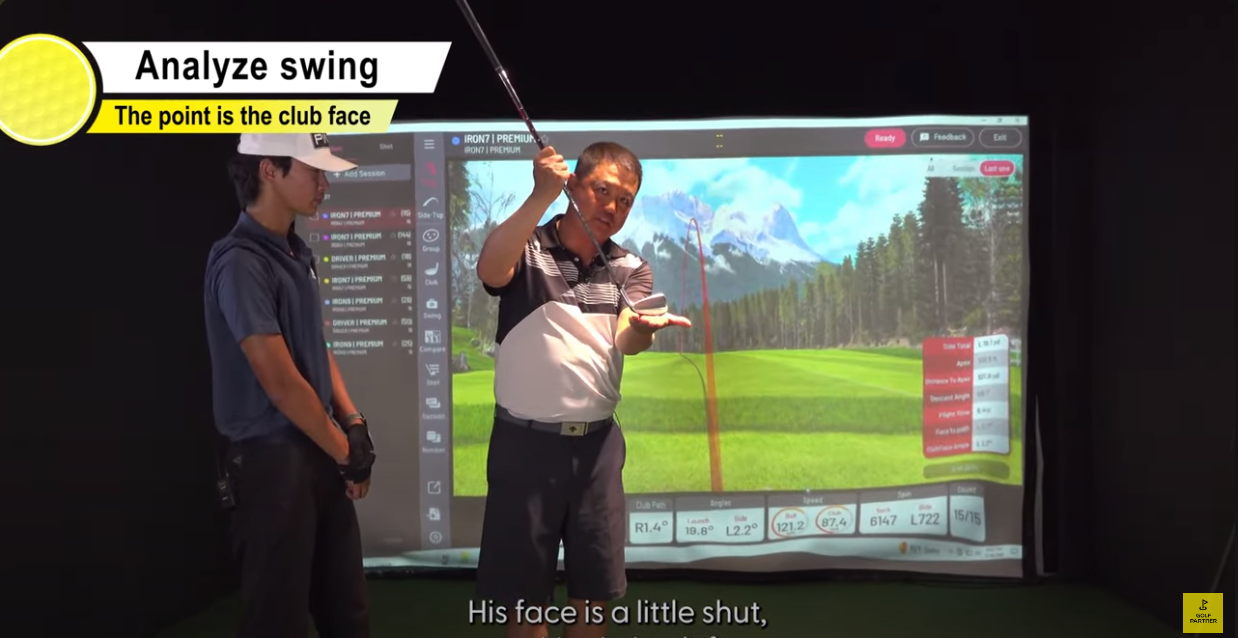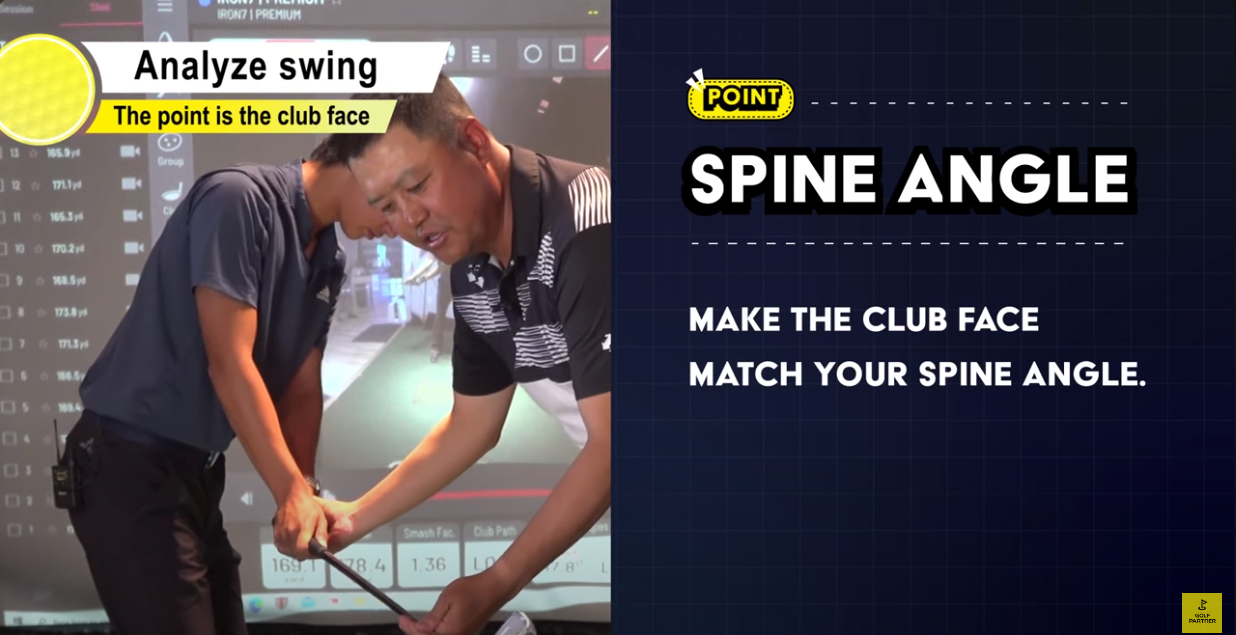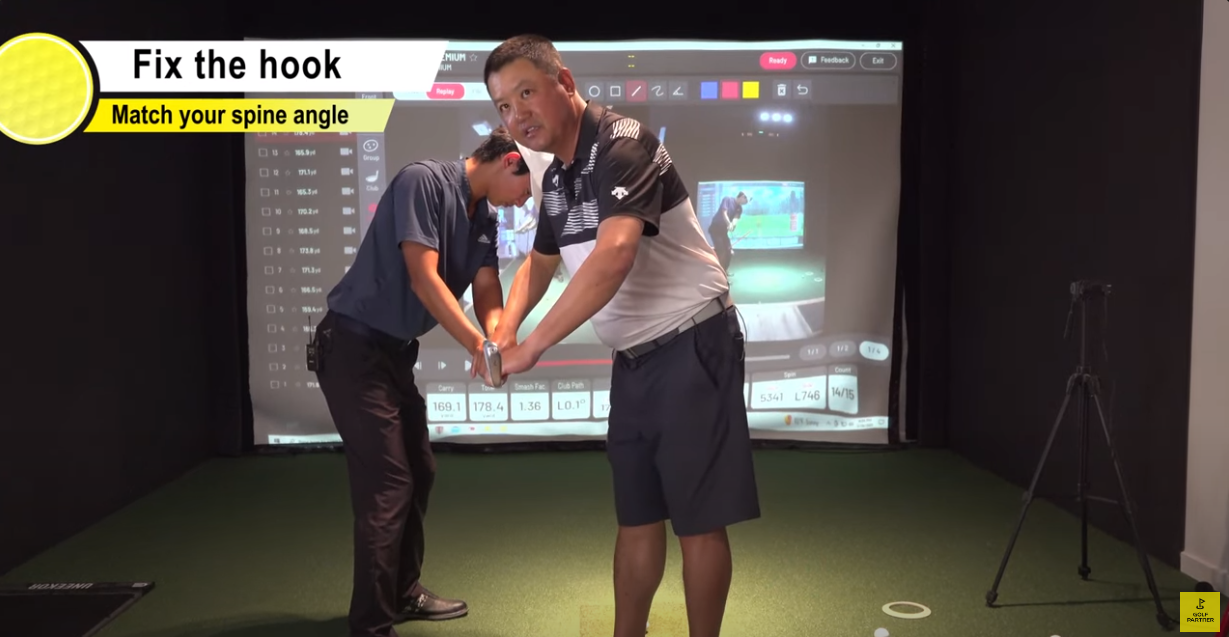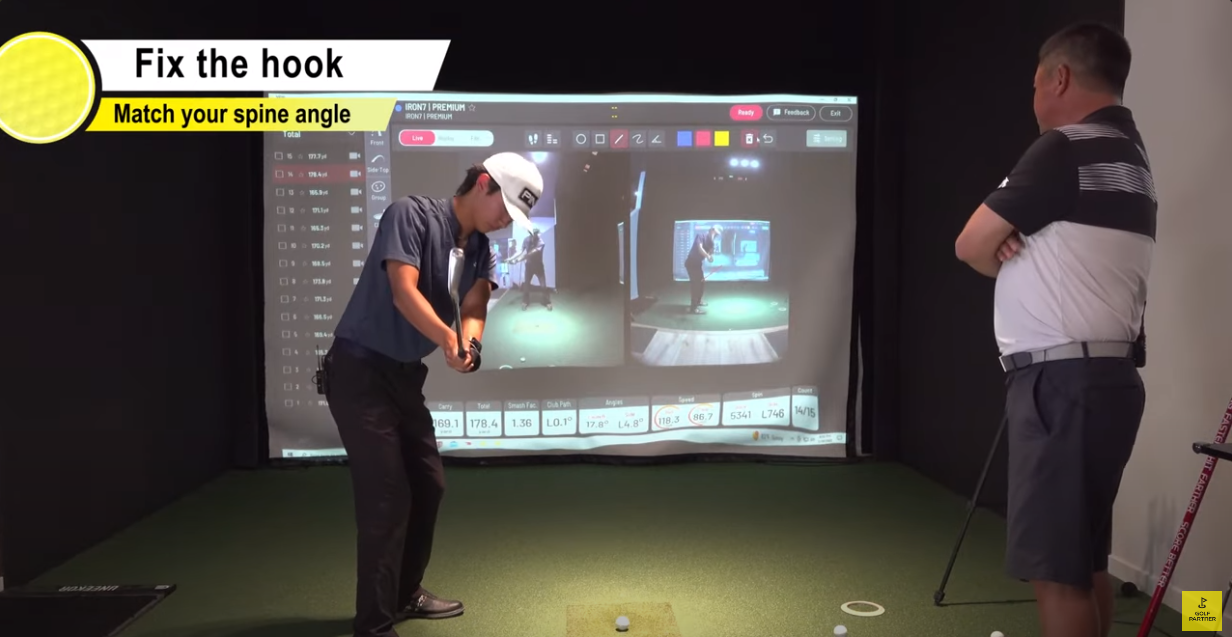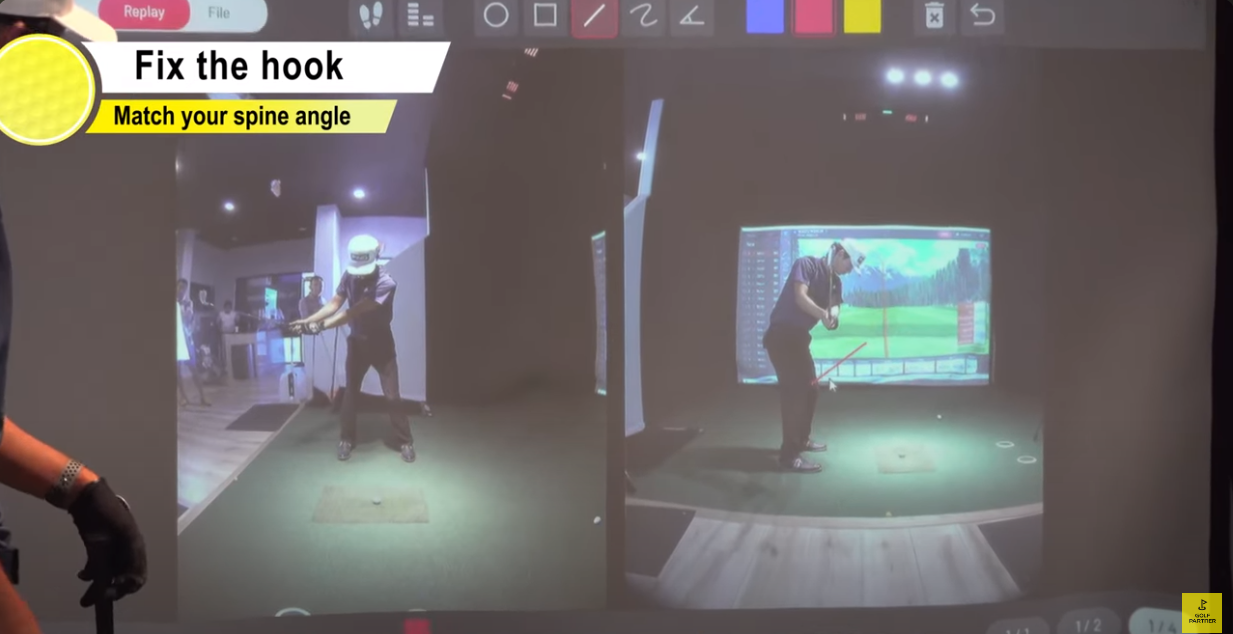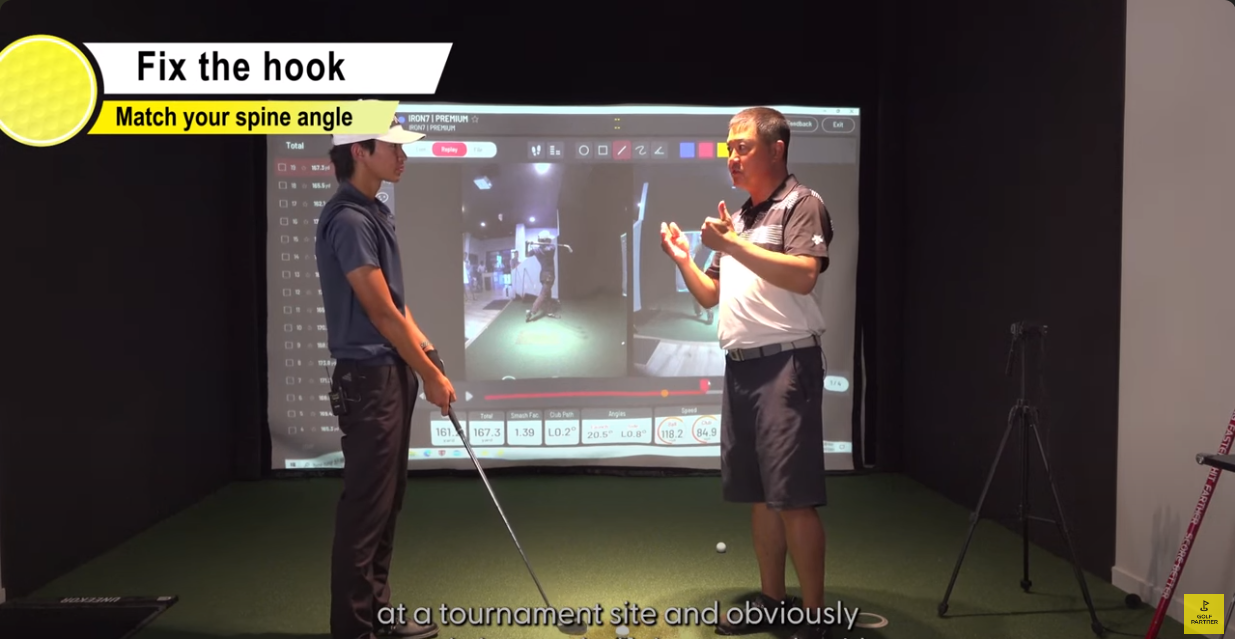Introduction
Welcome back, golf enthusiasts! Today, we're delving into another insightful session with Ted Oh, where he tackles a common golfing woe—overhooking. Winston Shen, a dedicated golfer who likes to compete and has a decade of experience, seeks Ted's guidance to rectify his overhooking issue. Winston's goal is to hit a baby/power fade to correct his overhooking and Ted breaks down the problem and provides a simple yet effective solution that you can implement at home.
Identifying the Problem
To start, Winston will hit a test shot:
During a recent tournament, Winston struggled with overhooking, consistently hitting left shots. Ted explains that overdraw results from the club swinging too far into out and the club face aiming left of the target.
Ted illustrates Winston's swing, emphasizing that the club is coming down straight, but the face is slightly shut, causing it to aim left. He points out the toe of the club facing in, making the face closed and causing excessive ball curvature.
Ted suggests Winston's takeaway is a common issue among those experiencing a hook. He advises aligning the club face with the spine angle during the takeaway. Currently, Winston's left wrist is shutting the face, contributing to the problem.
To rectify this, Ted instructs Winston to exaggerate the takeaway, ensuring the club face matches the spine angle. He encourages Winston to maintain this face angle at the top and then initiate a slightly out-to-in swing, rotating through the body.
Putting it into Practice
Winston takes a swing following Ted's instructions, focusing on the exaggerated takeaway, maintaining the face angle, and swinging left. The result? A controlled fade, exactly what Winston aimed for.
Ted continues to guide Winston, emphasizing the importance of an open face at the top. By exaggerating the face angle, Winston achieves a more balanced finish and avoids the pitfalls of an overly closed face.
Additional Insights and Homework
Ted provides valuable insights for those looking to fix their hook during a tournament. He suggests exaggerating the opposite – a more outside-in swing with an open face, simulating a slice. This temporary adjustment can help regain control over the club face.
Recognizing that every golfer is unique, Ted concludes by assigning Winston a specific drill to practice over the next few days. The "one-two" drill involves focusing on an exaggerated takeaway and maintaining the club face position. This drill aims to retrain Winston's muscle memory and address the root cause of his overhooking.
Conclusion
Ted Oh's expertise shines through as he helps Winston tackle his overhooking issue with a clear and actionable plan. Whether you're struggling with overhooking or looking to refine your swing, Ted's insights and drills offer valuable guidance for golfers of all levels. Try out these tips during your next practice session and watch your game improve!


